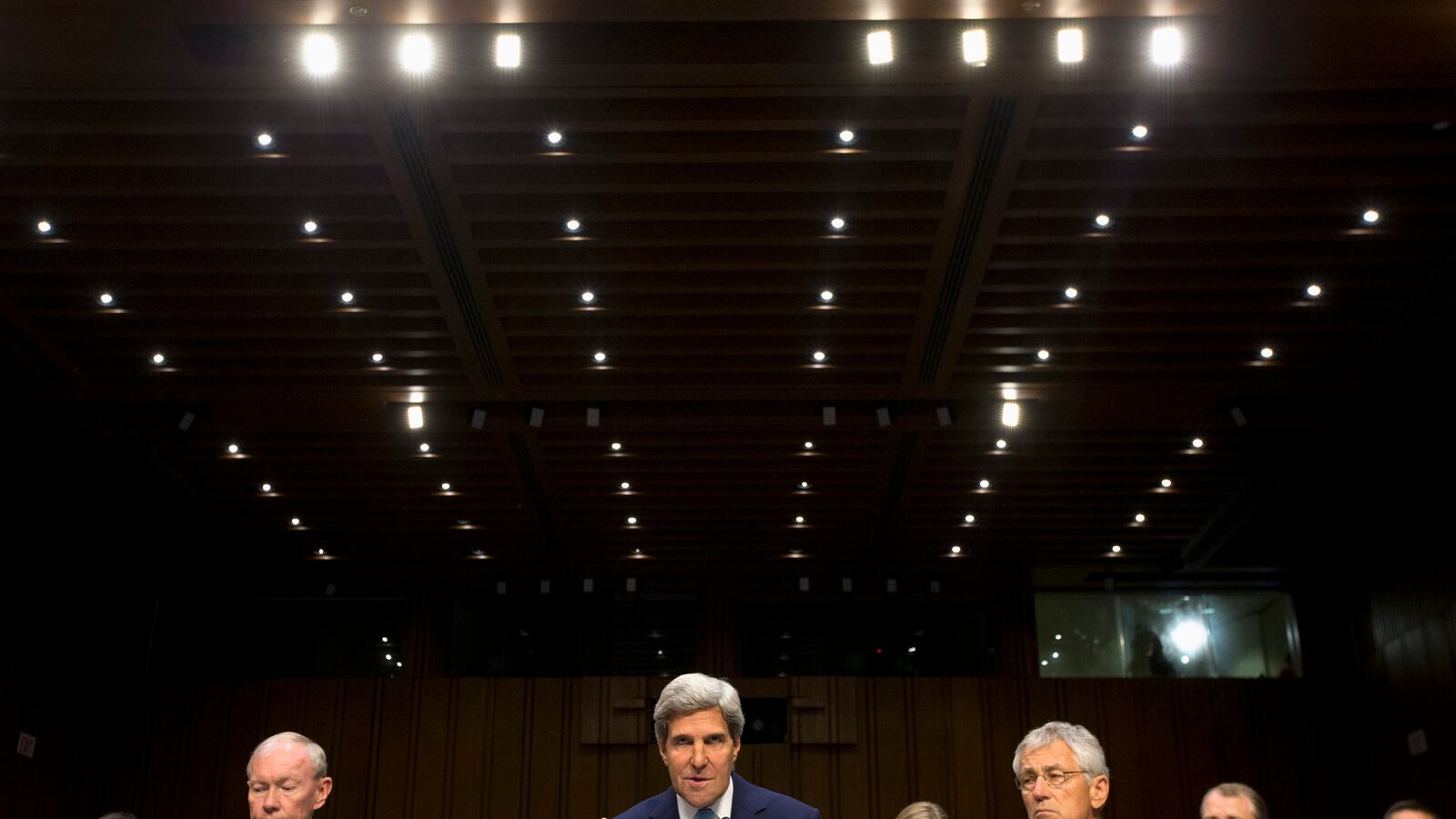If you want to know why so many non-Americans hate American foreign policy, simply do this: read the following statement by Secretary of State John Kerry from today’s Senate Foreign Relations Committee hearing on Syria:

“We don’t want to go to war in Syria either. It is not what we are here to ask. The president is not asking you to go to war.”
Then imagine that your country is the one being bombed.
On its face, Kerry’s statement is incoherent. “War,” wrote Carl von Clausewitz, “is nothing but a duel on an extensive scale.” It is “an act of violence intended to compel our opponent to fulfill our will.” By that classic, and noncontroversial, definition, what the Obama administration is contemplating in Syria is absolutely war. If it wins congressional authorization (and perhaps even if it doesn’t), the United States will reportedly strike Syria with Tomahawk missiles launched from destroyers and submarines in the Mediterranean Sea. Each Tomahawk carries a single 1,000-pound bomb or 166 smaller cluster bombs.
Here’s what one of the 1,000 pounders does to a building (apologies for the creepy music). As for the cluster bombs, each one, according to Amnesty International, “explode[s] into over 200 sharp steel fragments that can cause injuries up to 150m away. An incendiary material inside the bomblet also spreads fragments of burning zirconium designed to set fire to nearby flammable objects.” Amnesty noted this in the course of an investigation into a 2009 Tomahawk missile strike in Yemen that killed 41 people, more than half of them children.
The United States is reportedly considering launching several hundred Tomahawk missiles against various Syrian military units and installations. Gen. Martin Dempsey, chairman of the Joint Chiefs of Staff, has acknowledged that “there is a probability for collateral damage.” The Obama administration, in other words, is planning to kill and maim an unspecified number of Syrians in order to deter Bashir al-Assad from again using chemical weapons or to uphold the credibility of a potential American military strike against Iran. That’s war.
So how can Kerry say it’s not? Because the ships launching the Tomahawks will be far from Syria, and thus apparently impervious to Syrian retaliation. War, in other words, is what happens when other nations kill Americans, not the other way around.
It’s not surprising that Kerry sees it that way. If America goes to war only when it puts large numbers of Americans in harm’s way—as in Vietnam, Afghanistan, and Iraq—then “war” is something we do relatively infrequently, and with great solemnity. If, on the other hand, America goes to war whenever we put non-Americans in harm’s way, war is something we do routinely and with little public debate. As we speak, after all, American drones hover over Africa, the Middle East, and South Asia, waiting to strike suspected terrorists.
In a sense, therefore, Kerry’s statement to Rand Paul is correct: President Obama is “not asking you to go to war.” He doesn’t have to ask because in America today, we take war for granted, so long as Americans aren’t the ones getting killed. And we’re surprised, and dismayed, when people in other countries don’t take it for granted too.






